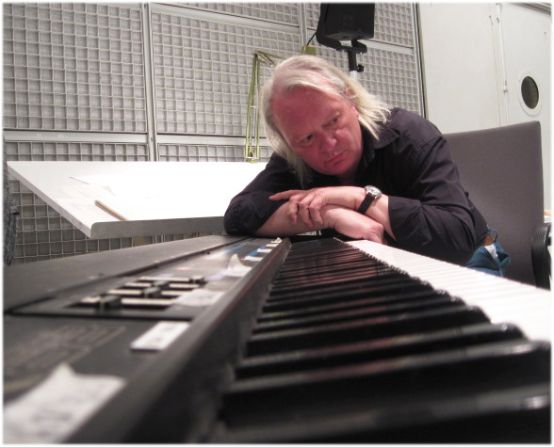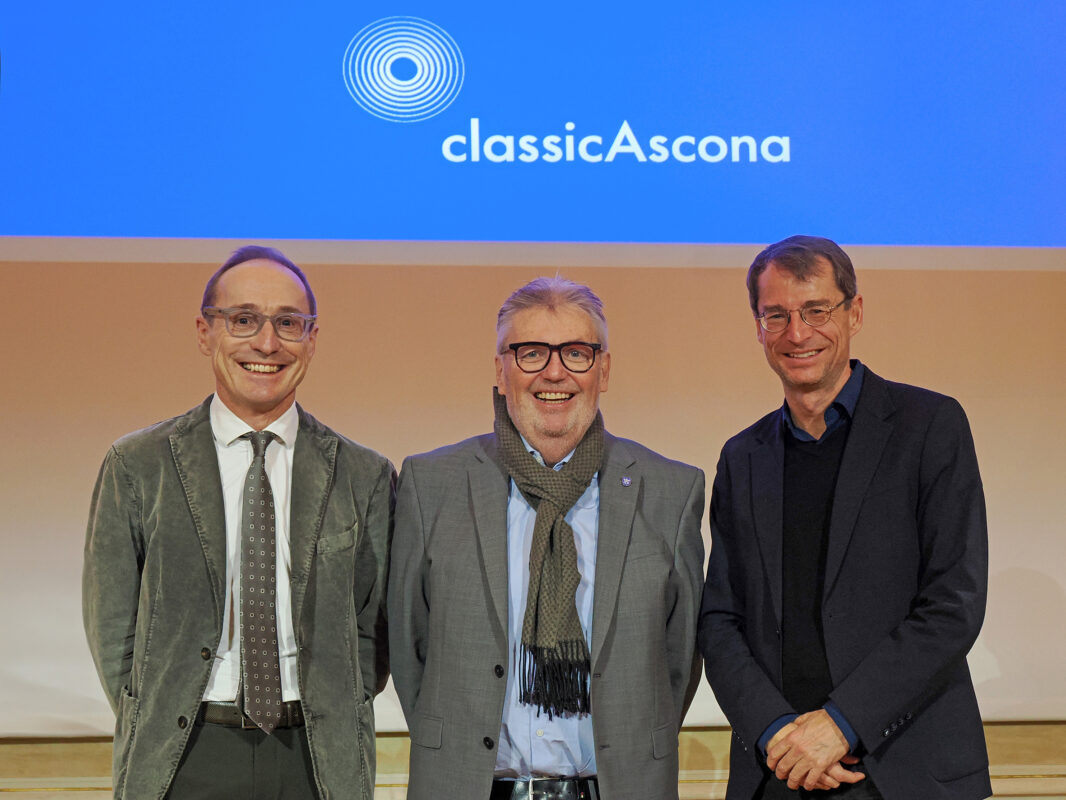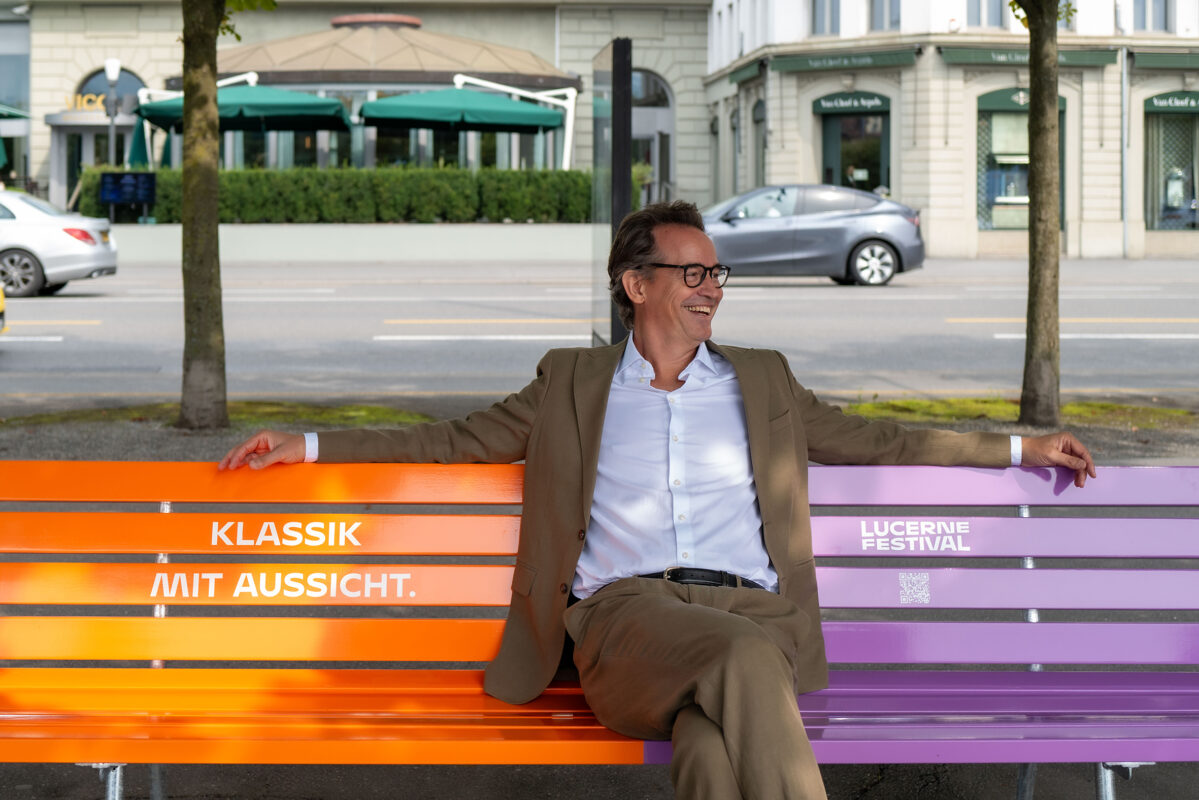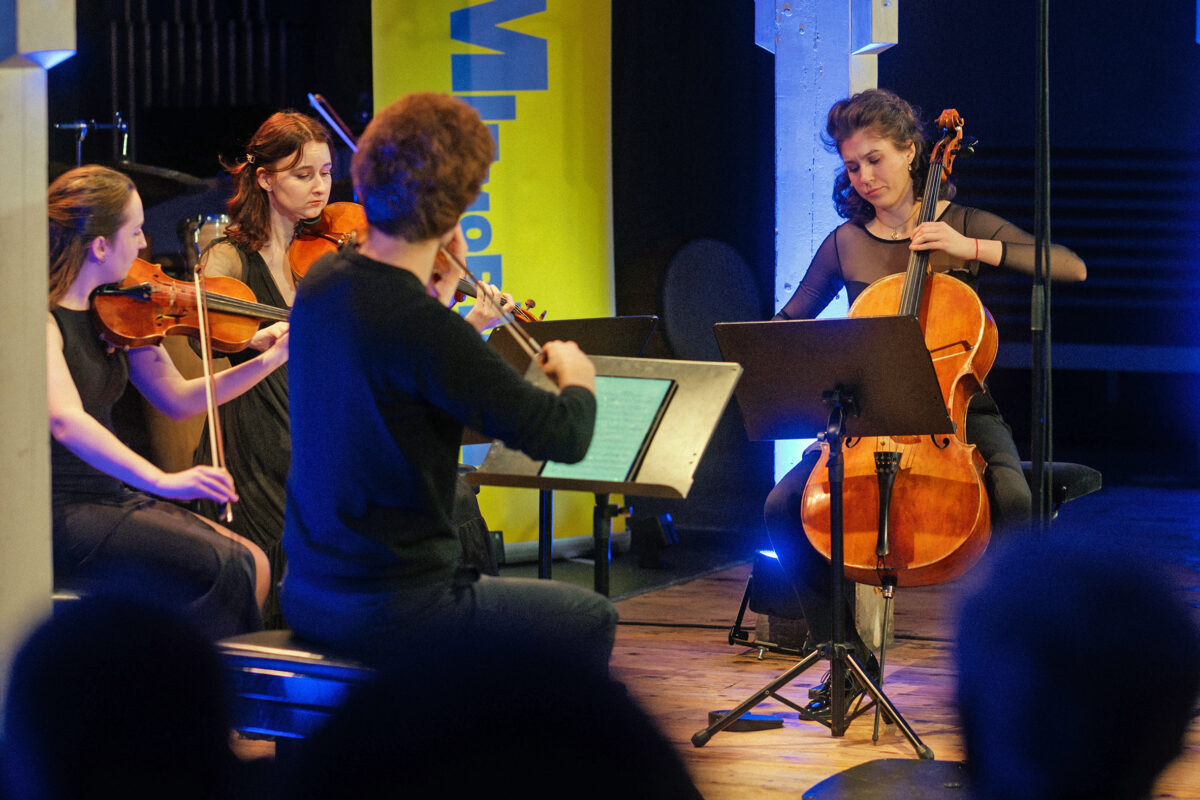Gifts of a special kind
The Wittener Tage für neue Kammermusik 2014 were packed with good to very good music.

You can listen to music at home. But it sounds different live, especially this expansive Le Temps Mode d'emploicomposed by Philippe Manoury. The fantastic pianists Andreas Grau and Götz Schumacher play at the front and their parts come from loudspeakers at the back with a time delay. The virtual and the real merge to create an impressive spatial soundscape full of bursting energy. Philippe Manoury, born in 1952 in Tulle, France, is very present at this year's Wittener Tage. As part of the composer portrait dedicated to him, this piano work will be accompanied by orchestral Funeral marches and a string quartet called Melencolia (d'après Dürer)which is inspired by Albrecht Dürer's famous copperplate engraving from 1514. In the work premiered in Witten Le Temps Mode d'emploi the tonal opulence was impressive, in Melencolia Manoury wrote very finely chiseled music. Structured by bell tones, new, interesting soundscapes emerge again and again. Tension is guaranteed - Manoury keeps it, almost casually, for over 40 minutes.
Gifts and Greetings
Such delicate pieces can only be adequately developed when top-class performers play them. Irvine Arditti, Ashot Sargsyan, Ralf Ehlers and Lucas Fels are among them. With all their almost provocatively relaxed mastery, one sometimes forgets the enormous difficulties of the works. In Manoury's Melencolia it becomes clear once again why the Arditti String Quartet (with changing line-ups) has enriched the contemporary music scene for 40 years. There is no such thing as unplayability for the "Ardittis". They are always in control and certainly never lack presence, radiance and energy. The 40th anniversary of the quartet was the occasion for a special party for Harry Vogt, artistic director of the Wittener Tage für Neue Kammermusik. 14 composers sent the quartet presents in the form of five-minute miniatures. The performance of the "little pieces" was met with a small smile from the experts, but musical humor is not the forte of New Music. The laborious events under the so casual title Gifts and Greetings revealed a considerable "Beethovenbartókardittiangst factor", as the young composer Philipp Mainz once put it. Indeed, string quartet composition is no child's birthday party - especially when such a constant companion of the Ardittis as Brian Ferneyhough appears as a guest. The New Complexity, for which Ferneyhough became famous (and infamous), obviously leaves little room for anything like a cheerful musical serenade.
Audible research
Brian Ferneyhough secured himself a place in music history during his lifetime. The Italian composer Giacinto Scelsi only achieved this after his death in 1988. Reviled as a dilettante on the one hand and revered as a demigod on the other, Scelsi is still a source of controversy today. The release of tapes from the Scelsi archive has now provided new material for discussion. 600 hours of music and speech material have emerged: Parts of an autobiography spoken on tape, piano improvisations, radio broadcasts, and recordings of ondiolas, precursors of the synthesizer. As part of a project by the Research Department of the Basel University of Music, musicologists are analyzing the tapes. At the same time, there is a form of audible artistic research presented in Witten. Both composers and improvisers, including the Swiss composer Michael Pelzel, are exploring Scelsi. In his Sculture di suono - in memoriam Giacinto Scelsi he concentrates on the distinctive "floating world" created by microtonal constrictions. The Ensemble Klangforum Wien gives a fantastic world premiere of this highly interesting work, which also skillfully integrates Scelsi's "flexible organ sonority" (Pelzel) in the form of excessive sequences of thirds and sixths.
The new looseness in dealing with the traditional is one reason for an extremely successful Witten year with 25 world premieres and four German premieres. Working on chamber music is worthwhile thanks to outstanding composers such as Philippe Manoury, but also thanks to top-class specialist ensembles such as the Ardittis, the Klangforum Wien, the Freiburg Ensemble and the Trio Catch, which has just performed in Witten. The GrauSchumacher piano duo came to Witten for the first time. They would obviously like to return to this laboratory of modernism. After three packed days full of good to very good music, they are not the only ones.








